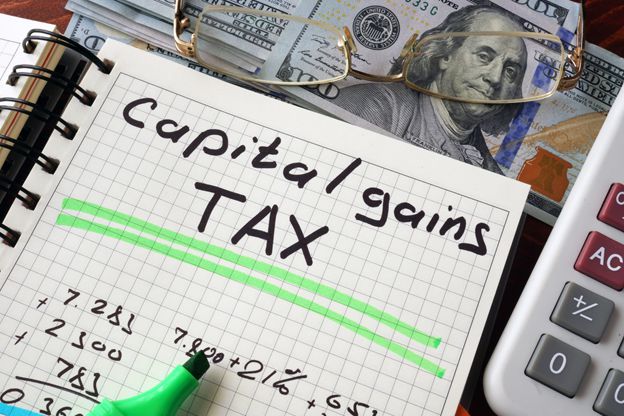
Recently a proposal to add inflation to cost basis in calculating capital gains was resurrected: an idea that’s been floating around for decades. Currently, capital gains are calculated based on the difference between the cost paid for an asset and the sale price of an asset. For example, if you bought a stock last year for $10 and sold it for $11 dollars the gain would be $1, and you would be taxed on the dollar.
Under the new proposal, a stock bought a year ago for $10 would now have a cost basis of not $10 but $10 plus inflation. So if inflation was 2% last year the cost basis would be $10.20 under the proposal meaning you would pay tax on $.80 not $1.00.
Taxes on capital gains are complicated. There are short term capital gains (for investments held less than a year) and long-term gains that are taxed at varying rates depending on your income and tax bracket.
Short term gains are taxed as regular income and based on your current tax bracket. In 2018, there are seven federal tax brackets: 10%, 12%, 22%, 24%, 32%, 35% and 37%. Brackets are determined by filing status, single, married filing jointly, head of household, or separate and on current taxable income.
There are 3 rates for long-term gains: 0%, 15% and 20%. For most filers, long-term gains are taxed at 15%. Those with incomes over $425,800 for single status or $478,000 for married filers capital gains are taxed at the higher 20%. If your income is under $77,200 (married) or $38,600 (single) you have zero tax due on long-term gains.
Investors make a substantial amount of their money by buying and selling investments, whether real estate, businesses or stocks, bonds and other publicly traded assets so raising the cost basis on an investment would reduce taxes.
However, changes in tax laws have consequences and some may be unintended. What will happen if taxes are cut too drastically, the deficit keeps growing at the same rapid pace as now and interest rates continue to rise? Will the change in the way capital gains are taxed create a higher demand for selling stocks tipping the balance of buys and sells creating a bear market? Will the change be good for the overall economy?
Whether this idea has merit or is enacted depends on congress and the end result may lead to an outcome that is less than desirable.








